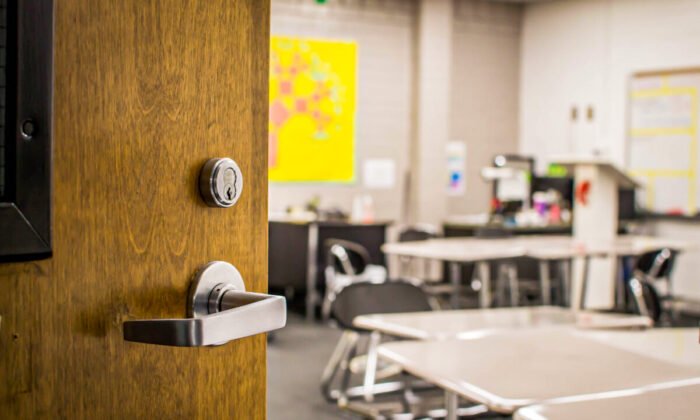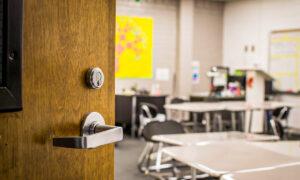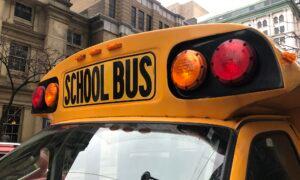Two Canadian Teachers: Navigating the ‘Woke’ Education System
Commentary
This teacher drapes herself in a pride flag and speaks openly of her pansexuality as well as her subscription to social justice and DEI.
Northrop Frye wrote in “The Great Code” that the aim is “to see what the subject means, not to accept or reject it.” There is nothing wrong with the teaching of either me or the Surrey high school teacher as long as we are not steering students toward belief. In a 100-page investigation report on my teaching, an assistant superintendent of the Abbotsford School District wrote:
“It in my view cannot be overemphasized that Mr. McMurtry having no knowledge of his students and more particularly whether any of these students had Indigenous descent in making his comments that provoked a strong student response and which was contrary to the school’s message of condolences and reconciliation. Regardless of his intent he left students with the impression some or all the deaths could be contributed to ‘natural causes’ and that the deaths could not be called murder or cultural genocide.”
My fault was that I didn’t promote a “message of condolences and reconciliation.” Not only was this message never communicated to teachers, the message runs counter to the educational aim of seeing what a subject means. The message is also that the deaths of at least some residential school children were attributable to murder, for which there is still no evidence.
Some have criticized me for stating that the good, as well as the bad, of residential schools should be recognized. I stand by that statement. Others have criticized me for stating that the Truth and Reconciliation Report was not as balanced as it should be. I stand by that statement as well.
George Orwell wrote in 1945 in an introduction to “Animal Farm”: “At any given moment there is an orthodoxy, a body of ideas of which it is assumed that all right-thinking people will accept without question. It is not exactly forbidden to say this, that or the other, but it is ‘not done’ to say it.” Queen’s law professor Bruce Pardy wrote last year: “A new standard of practice is emerging for Canadian professionals: be woke, be quiet, or be accused of professional misconduct.”
The Truth and Reconciliation Commission, headed by two indigenous men and a woman married to an indigenous man, travelled for six years across Canada and heard from 6,000 former students. The commission’s bias was evident in its final report:
- the educational value of the schools;
- the alternative was no education at all in remote areas where a day school was not feasible;
- that both indigenous chiefs and parents saw them as a treaty right and petitioned to keep them open into the 1960s;
- that parents had to apply to send their children to residential schools;
- that the mandatory attendance which began in 1920 was to go to school (one-third going to day school, one-third to residential school, and one-third never going to any school);
- that the schools took in orphans and served as a refuge for children and in some cases adults who were abused on the reserve or without the necessities of life; and
- that many former students testified their time there was the happiest in their lives.
My natural allegiance is to fellow teachers, and I don’t doubt that the Surrey teacher and others within the critical social justice educational movement teach their students about critical thinking and create empowered citizens that can speak up for themselves. However, such critical thinking should also be directed against the orthodoxy these teachers are imposing on captive groups of students. As well, if their students are indeed empowered citizens, they should come to their own conclusions, no matter the ideological perspective of their teacher.
Views expressed in this article are opinions of the author and do not necessarily reflect the views of The Epoch Times.





